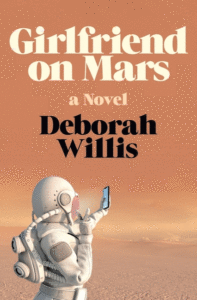
Richard Ford’s Be Mine, Sarah Viren’s To Name the Bigger Lie, and Tania James’ Loot all feature among the Best Reviewed Books of the Week.
1. Be Mine by Richard Ford
(Ecco)
7 Rave • 1 Positive • 1 Mixed • 2 Pan
Read an excerpt from Be Mine here
“Ford hides himself away and lets the inescapably, unstoppably logocentric Frank tell his tale in his own distinctive, discursive voice, a roving ‘I’ addicted to description and speculation. Every Bascombe book is full-on Frank … If you’re up for a dazzling, acutely painful 342-page monologue from a 74-year-old whose favorite shoe is a Weejun, who likes to rhapsodize about suburbia, and who is right now preoccupied with an unspooling tragedy on a road trip through a tranche of Trump country, Be Mine is just the ticket … The astonishing core of Be Mine is the barbed, tender, despairing bond between father and son … Every sentence is considered, yet many look like they’re about to fall apart in their devious careening.”
–Adam Begley (The Atlantic)

2. Girlfriend on Mars by Deborah Willis
(W. W. Norton & Company)
4 Rave • 2 Positive
Read an essay by Deborah Willis here
“…veers giddily on the brink between satire and tragedy, transporting us to places we never dreamed we’d go … However fantastic, nutty and corrupt this all sounds, we are reminded that Musk and his fellow billionaires are already deep into space travel. And that reality, together with Willis’ witty writing, entangles us in the quagmire of comedy, love and fear portrayed in these pages. Sometimes it seems as if this Vancouver couple might represent one whole — albeit flawed — being, with Kevin representing feeling, and Amber, blind ambition, and the universal urge to flee town, or in this case, the planet, while earthly love takes a back seat.”
–Nancy Wigston (The Toronto Star)
3. Loot by Tania James
(Knopf)
5 Rave
Listen to an interview with Tania James here
“James moves within the historical record while freely exploiting its considerable gaps and silences … At 300 pages, this isn’t a particularly long novel, but James is a master miniaturist who can create the illusion of a saga in a chapter. And she’s not afraid to radically reset the novel’s place and tone. Her pages feel as full as a 19th-century bildungsroman, with collapsing kingdoms, sailing ships and elaborate schemes. Her plot is crisscrossed with coincidences and near misses, acts of great villainy and stunning kindness, and, of course, a long-simmering romance that’s doomed — until it isn’t! … Abbas doesn’t hear the household servant who insists that it’s ‘never too late to reinvent yourself,’ but he knows that’s true better than anyone else in this captivating story. He just wants to create something that will outlast its creator. James surely has.”
–Ron Charles (The Washington Post)
**
1. To Name the Bigger Lie: A Memoir in Two Stories by Sarah Viren
(Scribner)
5 Rave • 2 Positive
Read a craft essay by Sarah Viren here
“Strange and wonderful … The book is preoccupied with twinned phenomena and dual perspectives. It’s a book for our times, when singular truths seem less certain with each passing day … She seems to be saying that creating art is as much meaning as we can hope for in this world. This might sound self-congratulatory, but it struck me as the ideal ending for this ouroboros of a book.”
–Claire Dederer (The New York Times Book Review)
2. What an Owl Knows: The New Science of the World’s Most Enigmatic Birds by Jennifer Ackerman
(Penguin Press)
5 Rave
Read an excerpt from What an Owl Knows here
“Ackerman is a warm and companionable guide, so enthusiastic about her subject that I suspect even the avian-indifferent will be charmed by her encounters with owls and the dedicated people who study them. Each species seems like a marvel, but certain owls are so special that her book is peppered with superlatives … The photos in Ackerman’s book are fascinating.”
–Jennifer Szalai (The New York Times)
3. Revolutionary Spring: Europe Aflame and the Fight for a New World, 1848-1849 by Christopher Clark
(Crown)
3 Rave • 2 Positive • 1 Mixed
“The society brought to life in Revolutionary Spring thrills with unexpected energy. Clark speaks the language of liberal moderation, of political radicalism, of religion and of patriotism in ways that capture something of the glamour that infused them at the time … This is narrative history in the grand style, and Clark does not neglect the great set pieces. If you want the February revolution, the fall of Metternich, the Five Days of Milan, you will find them vividly rendered here in a prose that interlaces deep learning with deliberate anachronism.”
–Abigail Green (Times Literary Supplement)

